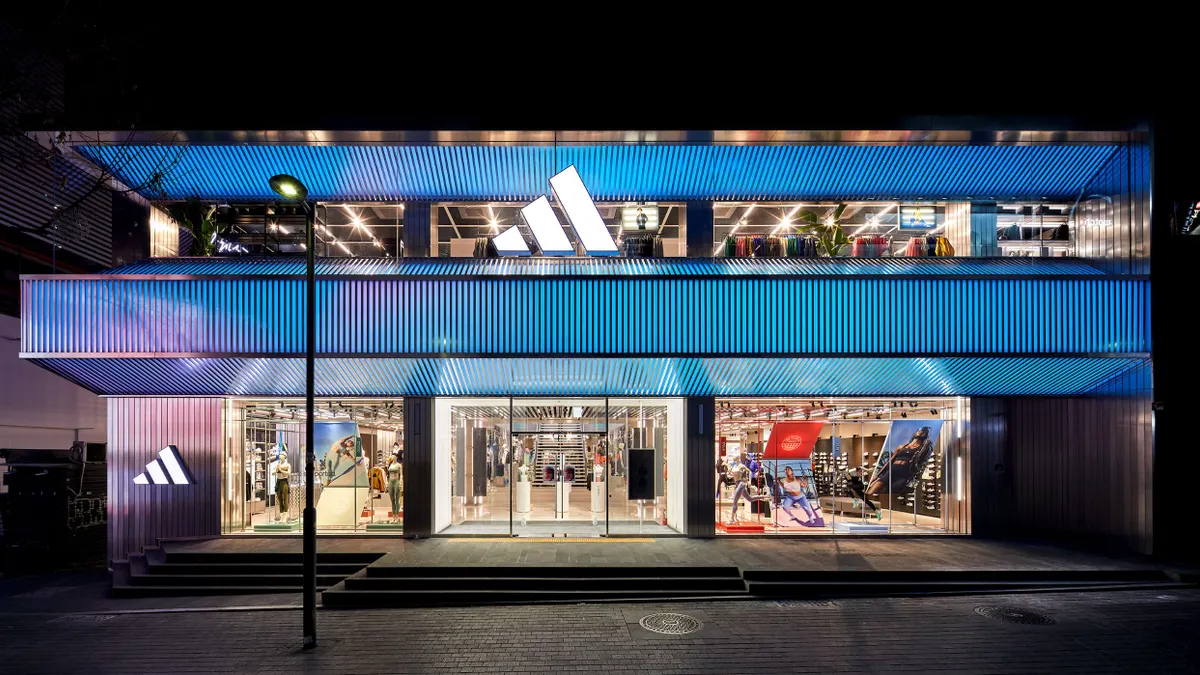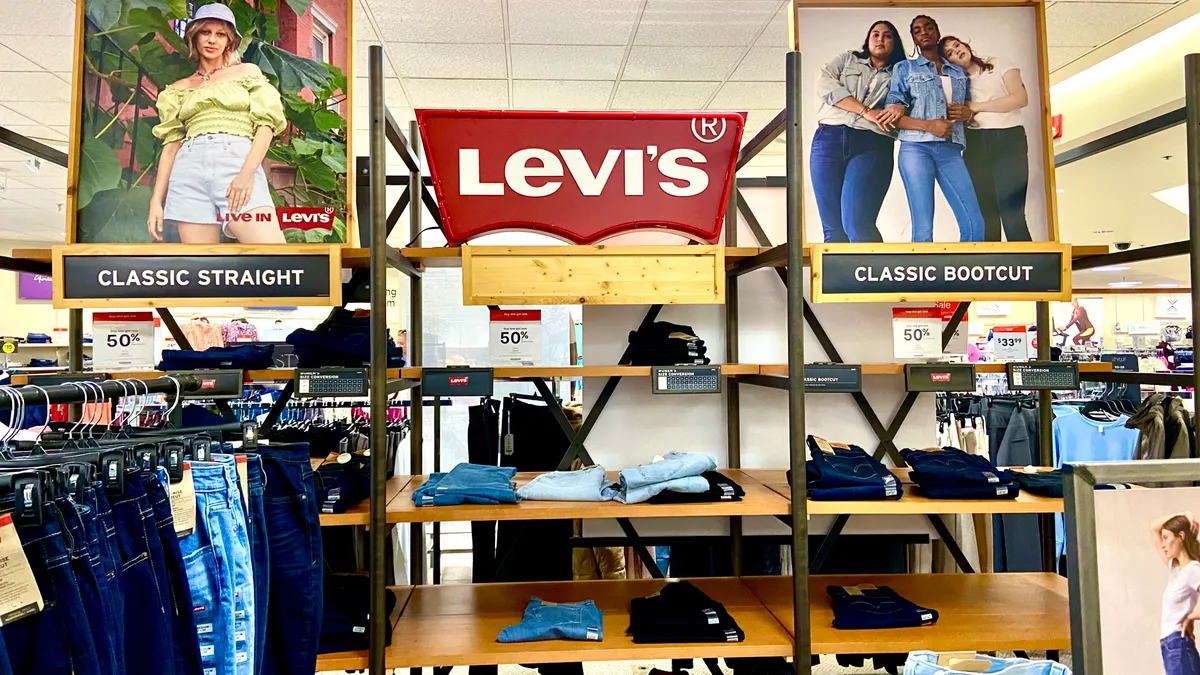There was a time in the 80s when shopping could be easily compared to a religious practice. While Gordon Gekko was opining about greed being good, the economy was humming along, and the mall was central to both consumerism and how American life functioned, simply because the physical space acted as a town center.
"The mall was where you bought almost anything but food," said Nick Egelanian, founder and president of SiteWorks Retail. "There were some discounters. There were some drug stores, obviously grocery stores. But malls were a big part of the household experience in the mid-1980s."
Then life changed. The following decades brought with them the onset of the internet and with it a little company that sold books called Amazon. It also heralded the bursting of the dot-com bubble and The Great Recession. All of which contributed to altering the landscape of how people shop.
Recent history has also not been kind to malls, with 2019 proving to be a particularly hard year overall. As of this September, over 7,000 stores have closed — more than any other full year — according to research from accounting and consulting firm BDO. The high rate of store closures means empty square footage and, ultimately, uninhabited malls.
With many retailers coming to a day of reckoning, there is the practical matter of what to do with all that deserted space — and some malls are looking to the heavens for an answer.
The Church at the Mall
In the late 1990s, a Southern Baptist church in Lakeland, Florida, bought an entire mall. At one time, the building housed Sam's Club and the now-defunct Montgomery Ward as its anchors, but then things started to transform.
"The reality is, as the community around the mall changed, then the mall anchor stores began to pull out one by one," said Dwayne McDow, associate lead pastor of stewardship at the Church at the Mall, regarding the trajectory of the building that would soon become the church's home.
"It’s definitely a buyer’s market for anyone who is interested in an abandoned shopping mall."

Dwayne McDow
Associate Lead Pastor of Stewardship, The Church at the Mall
The decision to take over a former shopping mall and surrounding buildings, which comes in at around 500,000 square feet, made sense to the church's leadership for a number of reasons. The congregation was growing, so there was a need for more facilities. Additionally, moving into an abandoned, sprawling retail space came with cost advantages.
"From a financial standpoint, the church got significantly more acreage and square footage than they ever could have gotten for that same dollar amount anywhere else," said McDow. "It's definitely a buyer's market for anyone who is interested in an abandoned shopping mall."
Beyond the specs of the building, the decision to buy was based on something more spiritual at its core. The location aligned with the church's service mission by being centrally located, McDow said. "You have to be called to a community, or it won't work," he said.
What made shopping malls appealing to the public at their onset — recreating a downtown experience that connects a community — is the exact thing that drove the Church at the Mall to focus on the building. The church just answers to the spiritual callings of its neighborhood instead of consumer needs.
Is it a godsend?
Not all religious organizations are taking over entire malls. Many take over an empty location left by a former anchor.
But, the concept of leasing to a religious organization may not be ideal for mall owners. Leasing to churches may act as a stop-gap to fill the space versus transforming it into a thriving center of activity, according to Egelanian. Churches, "are not really the right retailers for the long term, but are just filling empty space in the short term," he said. When a church tenant comes in, "it's creating immediate income, but it's actually hurting the long-term viability of the mall," he said.
While the retail industry deals with a wave of bankruptcies and many overstored chains, once-thriving malls must fill vacant space. B. Riley FBR recently reported that brick-and-mortar locations are expected to continue to shutter over the next 18 to 24 months, with a majority of the closures to happen at B and C-class malls.
"Sometimes people when they go to church ... occasionally they linger and talk with their other members. But, the idea that they're going to switch from a spiritual experience to a commercial experience — probably not."
Nick Egelanian
President, Siteworks
Open square footage has driven mall owners to think creatively about how to lease that space to non-retailers. Some locations are turning to co-working, while others are looking to gyms and even medical centers, according to Katy Welsh, senior director of retail services for commercial real estate company Colliers International South Florida.
When a church occupies space in an operational mall, it typically has its main activity when the rest of the spaces are closed on Sunday mornings. The self-contained nature of a church may also keep all of the activity within a former-anchor space rather than pushing people to other areas of the mall. Meaning that, although a large population is visiting the mall during church services, it isn't necessarily translating to foot traffic for other store locations.
"Sometimes people, when they go to church ... occasionally they linger and talk with their other members. But, the idea that they're going to switch from a spiritual experience to a commercial experience — probably not," said Egelanian.
Filling up the anchors
Christ Fellowship Church in Southern Florida isn't housed in just one building. It has 12 different campuses that welcome 32,000 people on a weekly basis (and over 100,000 congregants that call it their church home). The church has a few ties with former retail spaces — namely with its location in a former Target at the Royal Palm campus and in a former Dillard's in Boynton Beach.
There are a number of advantages to the creative use of former retail spaces. "We really have seen a lot of opportunities, not just in the location, but we found we've been able to find efficiencies of costs by being able to take distressed real estate, commercial real estate, and repurpose it," David Lonsberry, executive director of business and finance at Christ Fellowship Church, said in an interview with Retail Dive.
One of those advantages: parking.
"Two things that almost every growing church wishes they had and never have enough of: That is, square footage and parking," McDow said.
Lonsberry agrees, adding that former retail spaces solve some of the trickier logistical problems that traditional religious spaces may run into. On Sundays, there may be start-and-stop traffic at a place of worship, but malls were built with parking in mind, thus eliminating that type of friction.
Colliers' Welsh reiterated that parking is absolutely a draw when placing a church-based tenant into a former anchor store. "The structure is already there," she added, commenting that the internal structure of a former anchor could also be a plus for a community of faith that is looking for a physical space. "If you have two stories, they can utilize that ... the ceilings are so high."
That was exactly the case for Christ Fellowship Church, which took over a former Dillard's. The location had parking and high ceilings, but it also needed to be retrofitted due to the specific needs of the congregation. The space needed a complete overhaul in the section that would become the sanctuary, in order to have a working two-story auditorium, complete with room for large screens. "We did not do that at the Target store ... and we probably wish we did in hindsight," Lonsberry said about the church's other retail-based location.
Additionally, upkeep of a former retail space can be costly for a religious organization due to the sheer size of the building. Christ Fellowship Church's former Dillard's location is 120,000 square feet and the former Target location is 116,000 square feet. Those spaces need heating, cooling and continued maintenance.
"The economics of the decision should not be the driving force," McDow also stated. "You should be going because you feel like you're going to fulfill the mission that God has called you to in that neighborhood, and moving to that property is going to allow you to fulfill that mission. Because the economics don't last."
Indeed, churches that take on a retail space talk about the central location as being vital to religious objectives as part of a larger community. The building simply acts as a means of reaching people.
"If you're not called to help meet those needs in a community, it won't last for the long term," McDow said.






















